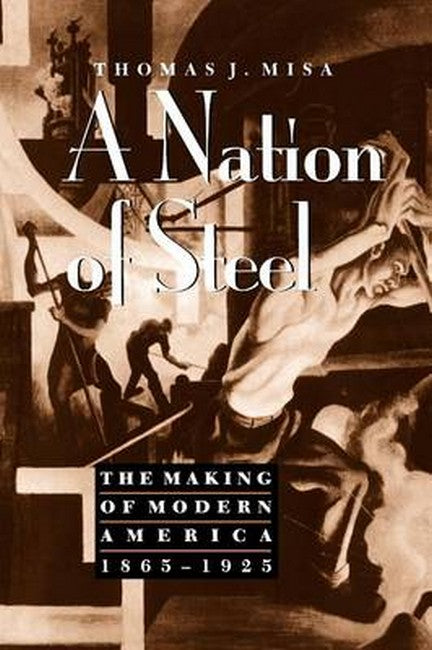Awarded the Dexter Prize for Best Book in the History of Technology ''This truly outstanding book will become required reading in the history of technology. The story of steel is important in its own right, and Thomas Misa writes with remarkable clarity and succinctness . . . The emphasis upon user-producer interactions allows Misa to focus on the social significance of technologies and to bring out nuances and contingencies in the development of critical technologies and industries.''--Edwin T. Layton, Technology and Culture From the age of railroads through the building of the first battleships, from the first skyscrapers to the dawning of the age of the automobile, steelmakers proved central to American industry, building, and transportation. In A Nation of Steel Thomas Misa explores the complex interactions between steelmaking and the rise of the industries that have characterized modern America. A Nation of Steel offers a detailed and fascinating look at an industry that has had a profound impact on American life. ''Each of Misa's six case studies is fruitful, and together they capture the enormously diverse and complex influences on technological change. Taken as a whole, this study constitutes a massive and successful assault on the neo-classical paradigm . . . This book will profoundly shape the way scholars understand how technologies 'are not only socially constructed but society-shaping.'''--David Bensman, American Historical Review ''A brief review can not do justice to the subtlety with which Misa links steelmaking to a larger socioeconomic environment . . . Based on new information from archival and other primary sources, this well-written, richly textured work greatly expands our knowledge of American industrialization.''W. David Lewis, Journal of American History ''In what will surely become a standard history of steelmaking, Misa integrates that industry's development with the industrial growth of America in the half-century following the Civil War. Involved in the interplay between steel production and the production of America were such developments as the railroads' demand for steel rails following the Civil War, the role of urbanization and especially tall-building construction, the armor plate requirements of the Navy, and the emergence and growth of the automotive industry.''Science, Technology and Society ''A splendid overview of an industry whose fortunes were inextricably intertwined with the railroads . . . The protions that treat the dynamic interrelations of the steel industry and the railroads clearly stand as the most sophisticated treatment of this complex topic that has yet appeared in print . . . An immensely rewarding book.''Robert C. Post, Railroad History

